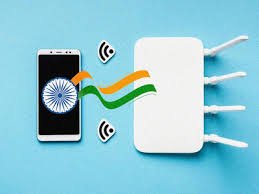Introduction
Mobile operating systems are the backbone of our smartphones, powering everything from communication to entertainment and productivity. Two of the most popular and widely used mobile operating systems are Android and iOS. While both offer similar functionality, they have distinct features and characteristics that set them apart. In this guide, we’ll explore the key differences between Android and iOS, helping you understand their strengths and choose the right one for your mobile device needs.
Android: Open, Customizable, and Versatile
Android is an open-source mobile operating system developed by Google, known for its flexibility, customization options, and wide range of devices. Here’s a closer look at what sets Android apart:
Customization and Personalization
One of the defining features of Android is its high level of customization and personalization. Users can customize their home screens, widgets, and app layouts to suit their preferences, thanks to the wide variety of launchers, themes, and customization options available on the platform.
Wide Range of Devices
Android powers a diverse range of devices, from budget-friendly smartphones to high-end flagship devices. This diversity ensures that users have plenty of options to choose from, with devices available in various sizes, shapes, and price points to suit different preferences and budgets.
Google Integration and Services
As an operating system developed by Google, Android seamlessly integrates with Google’s ecosystem of services and apps. From Gmail and Google Maps to Google Drive and Google Assistant, Android users have access to a wide range of Google services that enhance productivity, communication, and entertainment on their devices.
iOS: Seamless Integration, Premium Experience
iOS is the proprietary mobile operating system developed by Apple, known for its seamless integration, polished user experience, and ecosystem of devices and services. Here’s what makes iOS stand out:
Unified Ecosystem
iOS offers a unified ecosystem of devices and services, including the iPhone, iPad, Mac, Apple Watch, and Apple TV. This ecosystem provides seamless integration and continuity across devices, allowing users to easily switch between devices and access their content and data from anywhere.
Optimized Performance and User Experience
iOS is optimized for performance and user experience, with smooth animations, intuitive gestures, and consistent design language across the platform. Apple’s strict hardware and software integration ensure that iOS devices deliver a smooth and responsive user experience, with timely software updates and long-term support.
Privacy and Security
Apple prioritizes user privacy and security, with built-in features such as end-to-end encryption, app permissions, and privacy controls that give users greater control over their data and personal information. iOS devices are also protected by regular security updates and the App Store’s rigorous review process, which helps protect users from malware and security threats.
Choosing the Right Operating System for You
When it comes to choosing between Android and iOS, there is no one-size-fits-all answer. The right operating system for you will depend on your preferences, needs, and priorities. Here are some factors to consider:
Device Preference
If you have a strong preference for a particular device or brand, your choice of operating system may be influenced by that preference. Consider whether you prefer the design, features, and ecosystem of Android or iOS devices, and choose accordingly.
Customization vs. Simplicity
Android offers greater customization and flexibility, allowing users to personalize their devices to a greater extent. If you enjoy tinkering with settings and customizing your device to suit your preferences, Android may be the right choice for you. On the other hand, if you prefer a simpler, more streamlined experience, iOS may be a better fit.
App Ecosystem
Consider the app ecosystem and availability of apps on each platform. While both Android and iOS offer a wide range of apps and services, some apps may be exclusive to one platform or offer different features and experiences. Evaluate your app needs and preferences to determine which platform offers the best selection for you.
FAQs (Frequently Asked Questions)
What are some key differences between Android and iOS?
Some key differences between Android and iOS include customization options, device diversity, app ecosystem, integration with other services, and user interface design. Android offers greater customization and device diversity, while iOS provides a more integrated ecosystem and polished user experience.
Can I switch between Android and iOS?
Yes, it is possible to switch between Android and iOS devices, although the process may involve some challenges and limitations. While you can transfer your contacts, photos, and some data between devices, some apps and services may not be available on both platforms, and you may need to repurchase or re-download certain apps.
Which operating system is more secure: Android or iOS?
Both Android and iOS offer robust security features and regular updates to protect users from security threats and vulnerabilities. However, iOS is often considered to be more secure due to its strict hardware and software integration, app sandboxing, and centralized app distribution model through the App Store.
Can I use Google apps and services on iOS, and Apple apps and services on Android?
Yes, many Google apps and services are available on iOS devices through the App Store, including Gmail, Google Maps, Google Drive, and Google Photos. Similarly, some Apple apps and services, such as Apple Music, iCloud, and Apple TV, are available on Android devices through the Google Play Store.
How often do Android and iOS receive software updates?
Android and iOS devices receive regular software updates from their respective manufacturers, although the frequency and timing of updates may vary depending on the device manufacturer, carrier, and region. Apple typically releases iOS updates more frequently and provides long-term support for older devices, while Android updates may be delayed or fragmented due to the variety of device manufacturers and carriers involved in the update process.
Conclusion
Android and iOS are two of the most popular and widely used mobile operating systems, each offering unique features, strengths, and characteristics. Whether you prefer the customization and versatility of Android or the seamless integration and polished
